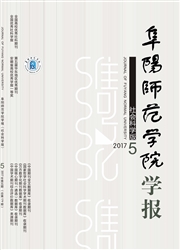

 中文摘要:
中文摘要:
"言"与"道"的关系是中国文学发展的基本母题。魏晋时期,曹丕、刘勰等人开始将"言"与"道"关系确定下来,"原道"成了文学创作的肇始点。到了唐代,两者的关系被进一步拓展,豪放与雄浑构成文学"言道"的最初风格,中唐以后,对"道"的体认开始从抽象变得具体,其现实特征获得凸显,"明道"成了基本的创作指导。进而,唐代对"言"与"道"之间关系的倡导和实践,为宋代理学"载道"思想的提出奠定了基础。
 英文摘要:
英文摘要:
The relationship between "expression" and "Tao" is the basic theme in the Chinese literature. During the period of Wei and Jin dynasties, some intellectuals such as Cao Pi and Liu Xie began to establish this relationship, and "Tao" coming from Confucianism became the core of Chinese literature. In Tang dynasty, "Haofang" and "Xionghun" constituted the original style of "Expressing Tao", and "Tao" became concrete from abstract. So, realistic feature of "Tao" was highlighted after the mid-Tang dynasty. Furthermore, advocacy and practice on the relationship between "expression" and "Tao" laid the foundation for "carrying Tao" thought of neo-Confucianism in Song dynasty.
 同期刊论文项目
同期刊论文项目
 同项目期刊论文
同项目期刊论文
 期刊信息
期刊信息
